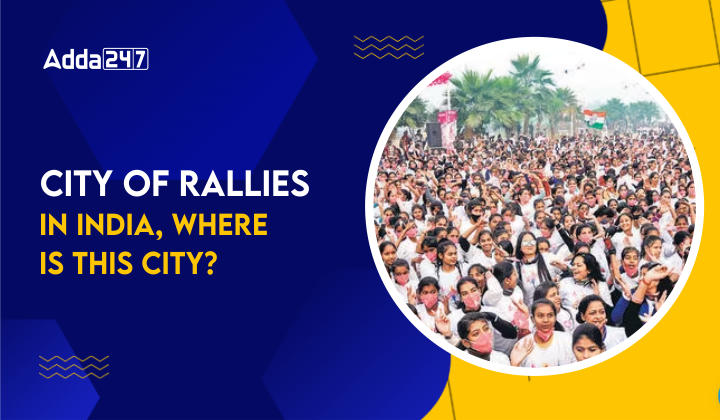India, renowned for its richness in diversity and vibrancy, is esteemed for the seamless blend of its cultures, traditions and languages. Similarly, its cities carry the legacy of history and an assortment of names that encapsulates their unique characters. In this intricate weave of urban identities, Delhi, the honored capital of the nation, stands out as the “Cities of Rallies in India.” This designation is not merely a surface-level tag; it serves as a tangible reflection of Delhi’s pivotal position within India’s democratic structure.
City of Rallies in India: Delhi
Delhi, the nation’s capital, is a city that pulsates with political fervor and activism. It is often affectionately referred to as the “City of Rallies in India” due to its unique status as the epicenter of political protests and public demonstrations. In this article, we delve into reasons why Delhi holds this prestigious title of “Cities of Rallies” and explore the historical, geographical and socio-political factors that have made it the foremost choice for those seeking to make their opinions heard on a national stage.
Why is Delhi known as “City of Rallies in India”?
Delhi is known as “City of Rallies in India” due to several reason, some of them are as follows:
1. Political Significance
Delhi is the capital city of India and houses important government institutions, including the Parliament House and various ministries. It is the epicenter of political decision-making in the country.
2. Proximity to Government Offices
Many political and administrative offices are located in Delhi, making it a strategic location for organizing rallies and protests. Advocacy groups, political parties and individuals often choose Delhi as the venue for their protests because it allows them to directly engage with policymakers and government officials.
Check This: Nicknames of Indian Cities
3. Historic Protests Sites
Delhi has historically been a hub for protests and demonstrations. Iconic locations like India Gate, Jantar Mantar and Ramlila Maidan have witnessed countless rallies and gatherings over the years.
4. Media Attention
Being the national capital, rallies and protests in Delhi receive significant media coverage. This exposure amplifies the impact and visibility of protests, attracting more people and organizations to choose Delhi as their preferred location for public demonstrations.
5. Legal Framework
The administration in Delhi has established mechanisms to facilitate peaceful protests and demonstrations. Organizers are required to inform the police about their plans and receive the necessary permissions, which help maintain law and order during rallies.
6. Security Measures
To handle the large number of demonstrations and rallies, paramilitary and police forces are stationed in strategic locations across the city. These security measures are in place to ensure that protests remain peaceful and do not escalate into violence.
Find More General Studies News Here



 Indian Olympic Medal Winners List Till N...
Indian Olympic Medal Winners List Till N...
 Who is the Inventor of the Gramophone?
Who is the Inventor of the Gramophone?
 HS Dhaliwal Appointed New DGP Of Andaman...
HS Dhaliwal Appointed New DGP Of Andaman...
